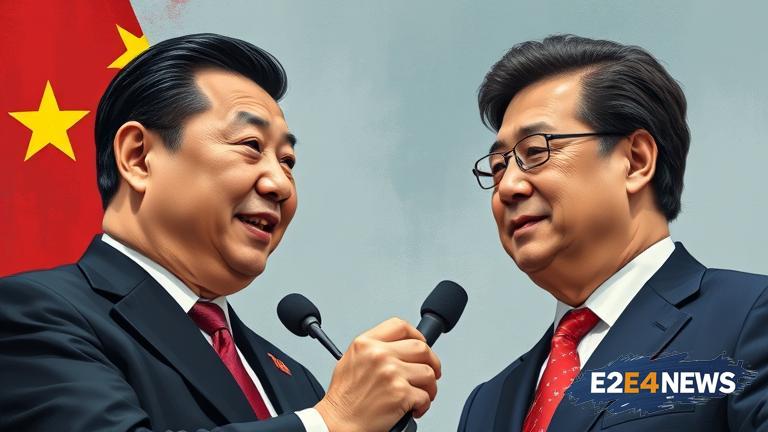In a recent statement, Chinese Premier Li Qiang expressed strong dissatisfaction with Australia’s trade policies, citing unfair restrictions on Chinese imports. The premier’s comments come amidst a period of heightened tensions between China and Australia, with trade being a major point of contention. The Australian government has implemented various trade restrictions on Chinese goods, citing national security concerns and unfair trade practices. China has responded by imposing its own trade restrictions on Australian exports, including coal, wine, and barley. The trade tensions between the two nations have been escalating for several years, with both sides engaging in a series of tit-for-tat measures. The Chinese premier’s comments are seen as a significant escalation of the trade dispute, with many analysts predicting further retaliation from China. The Australian government has defended its trade policies, stating that they are necessary to protect national security and ensure fair trade practices. However, China has accused Australia of discriminating against Chinese companies and violating World Trade Organization rules. The trade tensions have had a significant impact on Australian businesses, with many exporters facing significant losses due to the Chinese trade restrictions. The Australian government has been seeking to diversify its trade relationships and reduce its dependence on China, but this has proven to be a challenging task. The trade dispute has also had a significant impact on the global economy, with many countries watching the situation closely. The Chinese premier’s comments have been seen as a warning to other countries, highlighting the risks of engaging in trade disputes with China. Despite the tensions, there are still hopes for a resolution to the trade dispute, with many analysts predicting that a negotiated settlement will eventually be reached. However, the path to a resolution is likely to be long and difficult, with both sides needing to make significant concessions. The trade dispute has also highlighted the need for Australia to develop a more diversified economy, with a greater focus on innovation and technology. In conclusion, the trade tensions between China and Australia are a significant concern for both nations, with far-reaching implications for the global economy. The Chinese premier’s comments have escalated the dispute, but there are still hopes for a resolution. The Australian government will need to carefully navigate the situation, balancing its national security concerns with the need to maintain a positive trade relationship with China.
